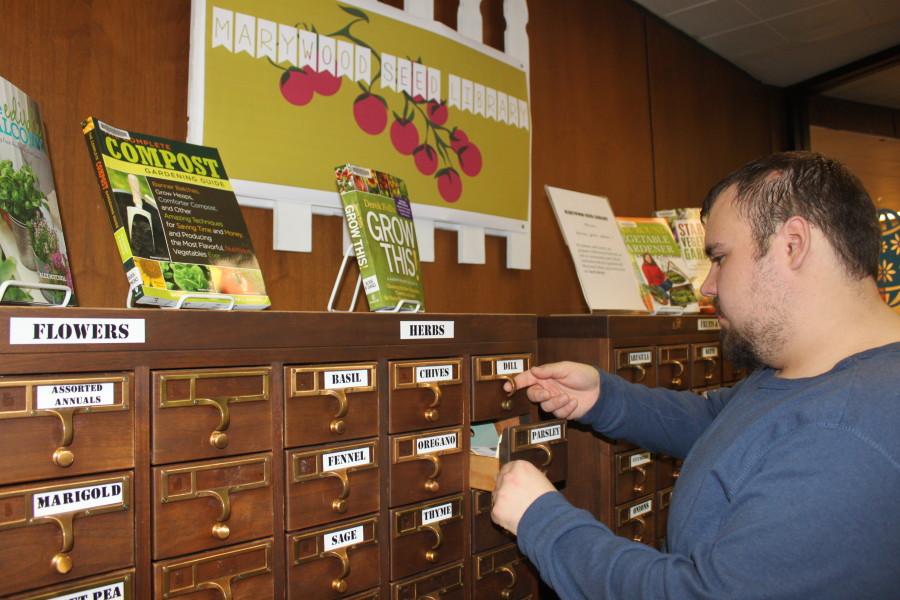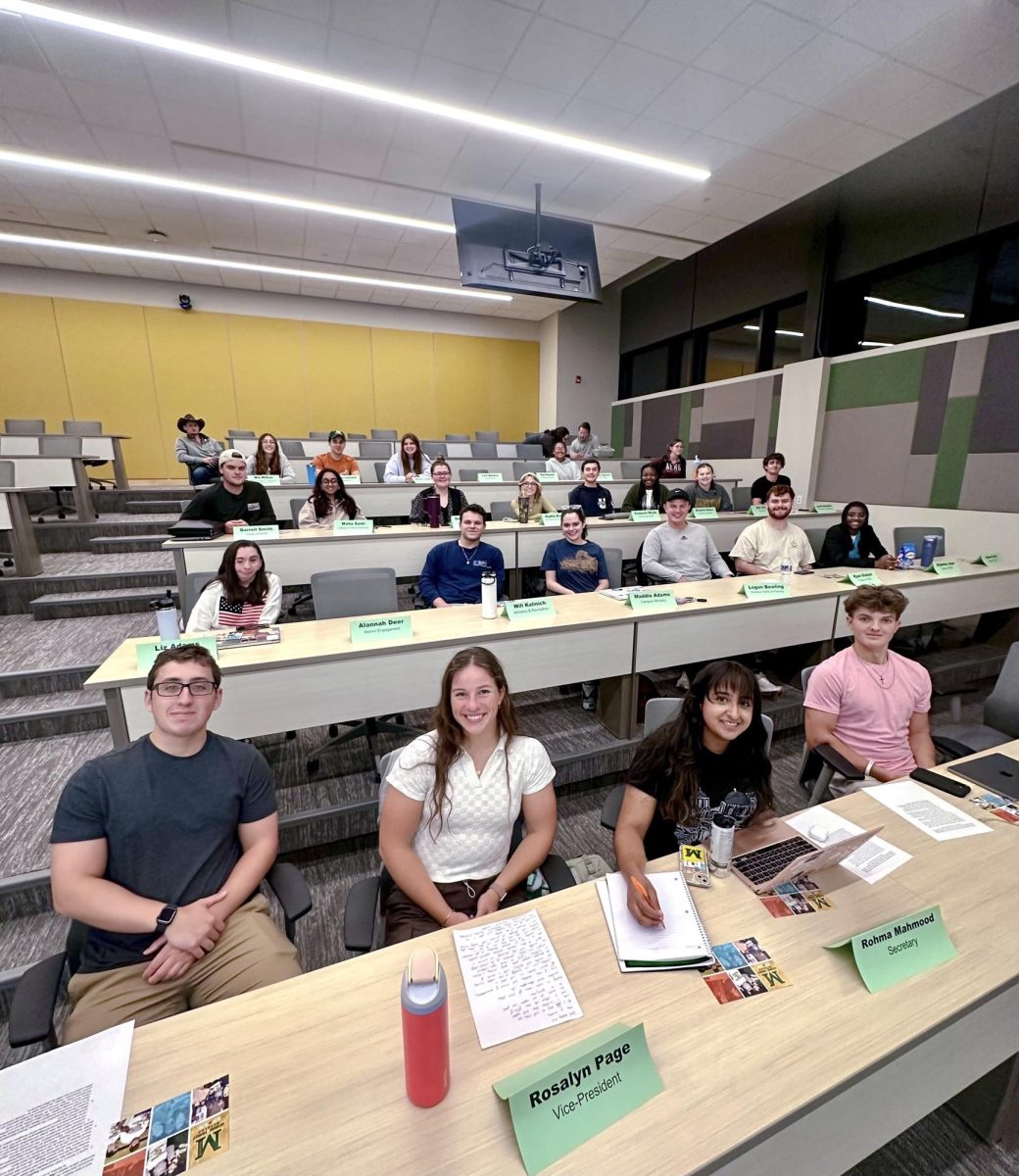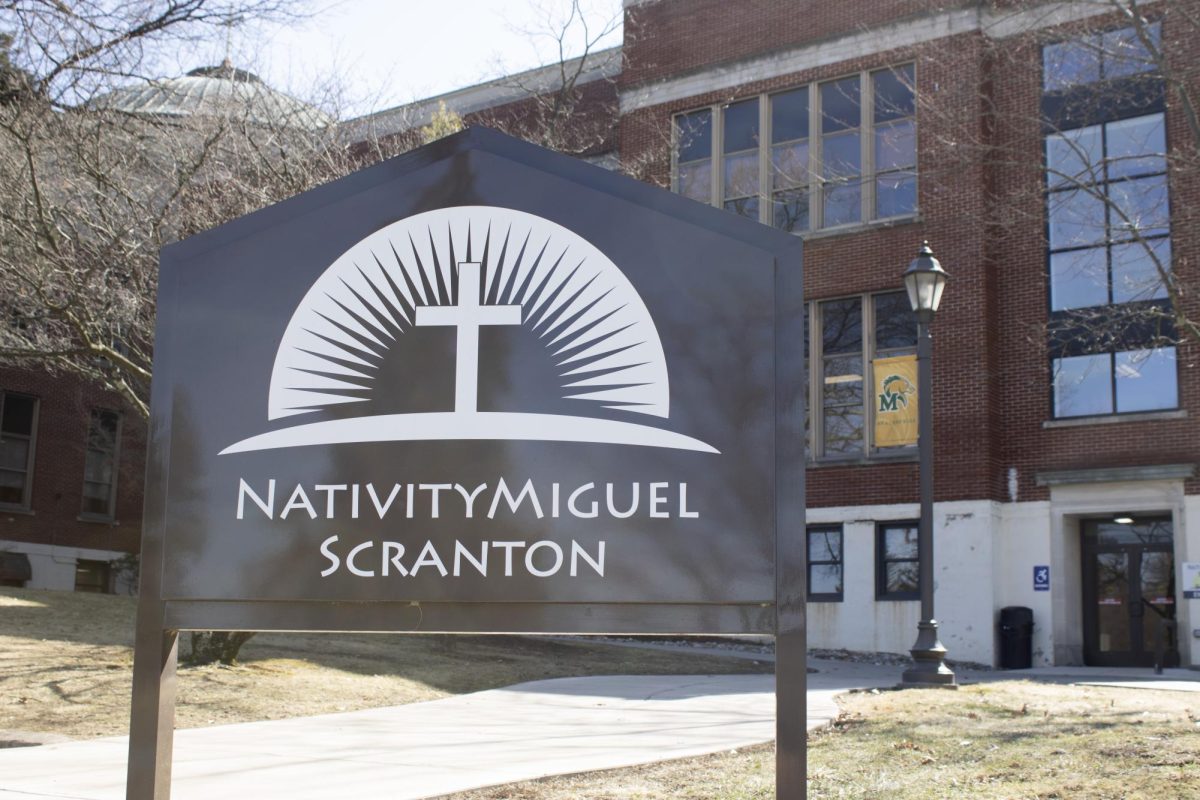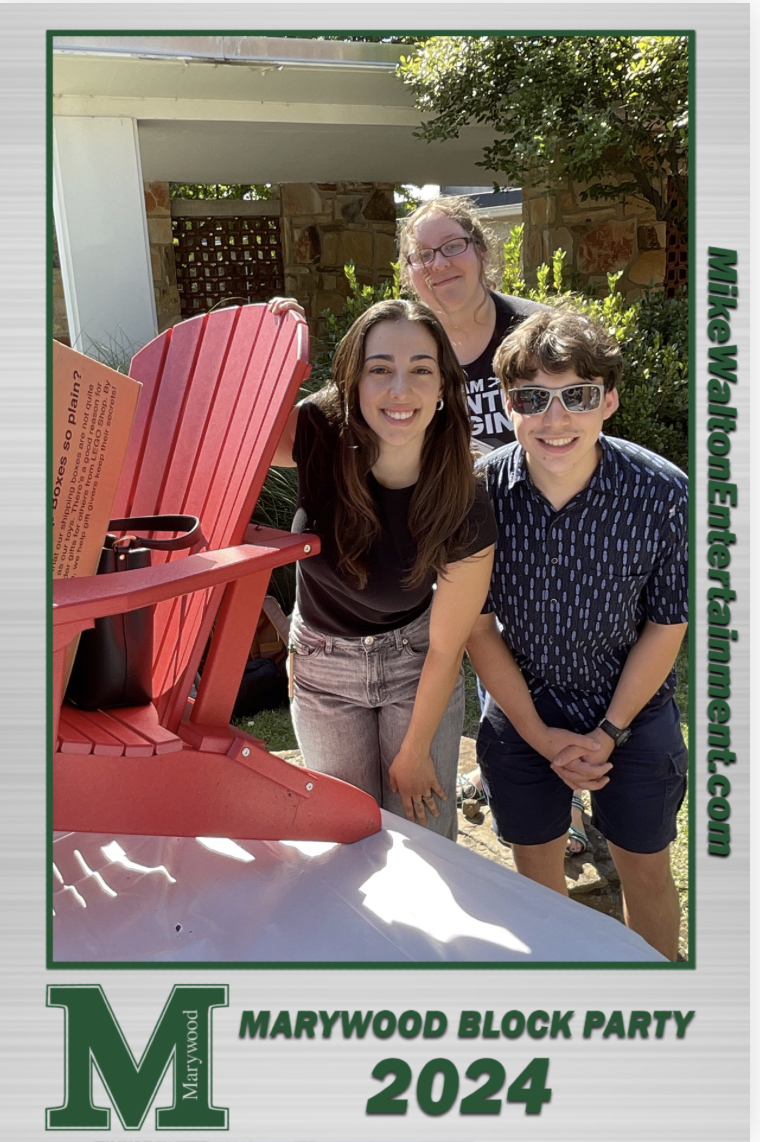Thought you could only get books from the Marywood library? Think again.
Lovers of gardening, homegrown food, and sunshine can now “check out” seeds at Marywood’s new Seed Library.
The Seed Library, the first in Northeastern Pennsylvania, is located in the Learning Resource Center and the seeds can be found in “Seed Chests” on the main floor near the Study Grounds Café.
Julie Watson, research librarian, Christine Zwick, cataloging associate, Margaret Matthias, instructional designer, and Tina Lavelle, department of communication sciences disorders administrative assistant; run the Seed Library and also assist Mark Burns, superintendent of Grounds.
The Seed Library mimics the library’s checkout system. Much like a book would be checked out and brought back, those interested in gardening can check out seeds and then return the seeds that have grown from their harvest at the end of the season. The seeds can be checked out for a nine month period at the Circulation Desk. Seeds returned can be an equal amount to the ones taken or more.
“I think [the Seed Library] is a wonderful asset for students,” said Quintin Klenchik, junior biotech major. “Growing your own vegetables or fruits is a small price to pay to help spread the greenery.”
However, there will be no penalty if the grower is unable to collect seeds from their harvest. But, it is requested that the packet the seeds were packaged in be brought back to the library to clear personal borrowing records. Growers may also purchase new packets of seeds and donate them to the Seed Library.
“Every time I plant vegetables or flowers, I save some seeds from my harvest for next year’s garden,” said Zwick. “This is my small way of preserving the past while guaranteeing future harvests for myself and for those with whom I share my seeds.”
A checkout process is also in place for tracking purposes. This will allow the library to record what is being taken out and can also help decipher what vegetables or fruits are preferred. Number counts of what people are taking will also be available to share if others were interested in starting a Seed Library or for donation purposes.
There is no limit to the amount of packets that may be taken out at one time. It is up to the growers’ discretion as to how many they would like to plant. The seed packets will contain 10-15 seeds.
Those interested in researching what kinds of seeds are available before visiting the library can search Marywood’s Library online catalog by clicking “Seed Library” or “Marywood Community Garden.”
Some seed types that may be grown include: onions, herbs, peas, cantaloupe, pumpkins, squash, eggplant, lettuce, watermelon, kohlrabi, tomatoes, and some flowers. All seeds were donated by Wegmans.
In addition to the seeds, new books on gardening are available next to the Seed Chests. The books can be checked out and can be beneficial for inexperienced gardeners, according to Watson.
“As a beginner, I like the idea of ‘borrowing’ some new varieties to test out during the upcoming season,” said Matthias. “It’s a great opportunity to try out something new without having so many seeds left over.”
The Seed Library is also opened to the public beyond the Marywood community. Library card holders from the Albright Memorial Library may also check out seeds as long as they register with Marywood.
“The seed library is for everyone,” said Watson. “Whether you’re a Marywood student, employee, or alum, or if you’re a member of the public, we are open to all, and our goal is to create and support a community of gardeners and seed savers.”
This year, an additional plot will be added to the community garden located by the softball field. The plot will be for student use. Up to this point, plots were for staff. Watson also hopes to start a student gardening club. If interested, contact Watson at [email protected].










